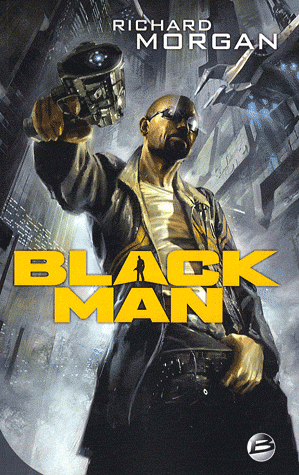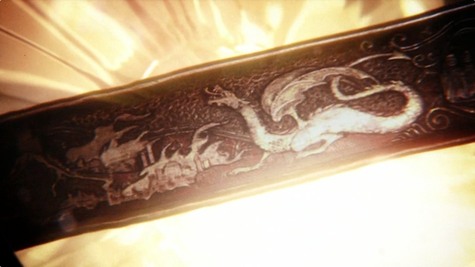 Lately I’ve noticed a few examples of a trend: authors who got their start writing science fiction have switched to writing fantasy. Why might this be? Probably because it’s become a bigger market!
Lately I’ve noticed a few examples of a trend: authors who got their start writing science fiction have switched to writing fantasy. Why might this be? Probably because it’s become a bigger market!
It’s pretty basic: writers go where the readers are. You can look at this in a number of ways:
- In a pejorative sense. These writers are cashing in, pure and simple
- As a matter of self-preservation. These people are essentially self-employed in one of the most capricious markets in our society, and are making a simple business decision
- As a demonstration of artistic principles or as a lark. It could be the challenge of doing something interesting in a hot new area. It could be, hey, what the heck, I want to do something wacky
Of course, a lot of writers don’t fit into this scheme when they try a new genre! Sometimes it’s because they have never been closely identified with one area of writing, and feel free to experiment. Other writers start out in a genre – say Ursula K. Le Guin with science fiction – but simply write whatever story they feel like (Le Guin has written SF, fantasy, children’s books, novels, poetry, accompanying text for a book of photography, instruction books for writing, translations (!), etc etc). My impression is that newer writers have been pigeonholed more strictly into one genre or another, but perhaps that’s just a function of not yet having as long a career as someone like Le Guin.
My first example of the scifi-to-fantasy switch is Richard Morgan. He burst onto the scene with Altered Carbon in 2002 – sex, violence, noir, cyberpunk, all mixed into a blender with the dial set to one hundred and eleven. He wrote two sequels to Altered Carbon, and while the sequels didn’t quite live up to the first book, it’s still a fun/dark playground. How do you solve (or even define) a crime in a world where “resleeving” after death means getting a new body for your consciousness?
 Morgan has also written two other SF books: the middling Market Forces, in which capitalism is expressed via death races and company takeovers with massive bloodletting (not as fun as it sounds, unfortunately), and the masterful Black Man, also known as Thirteen. Thirteen is my favourite of his books – the timeframe is the middle distant future, somewhere between the cartoony near-future apocalypse of Market Forces and the more distant future of immortality of the Altered Carbon books, and the context is the perfect fit for his trademark mix of excessive body fluid and SF conceptual play.
Morgan has also written two other SF books: the middling Market Forces, in which capitalism is expressed via death races and company takeovers with massive bloodletting (not as fun as it sounds, unfortunately), and the masterful Black Man, also known as Thirteen. Thirteen is my favourite of his books – the timeframe is the middle distant future, somewhere between the cartoony near-future apocalypse of Market Forces and the more distant future of immortality of the Altered Carbon books, and the context is the perfect fit for his trademark mix of excessive body fluid and SF conceptual play.
He followed Thirteen with The Steel Remains, his big splashdown in the fantasy market. The texture in some ways is not that different; as Morgan says on his website: “The Steel Remains is a grubby, blood-spattered trawl through exactly how unpleasant it might be to actually have to live in the average fantasy universe.” I thought the book was pretty good, but not as mind-blowing as Morgan might have hoped. It also seemed to be quasi-SF (which is how I think of it – we’ll see if that is a red herring; strangely, I was getting a distinct Tiptree vibe during parts of this book). A sequel is due soon; see a link at the end of this article for information about his intervening publication.
Two other examples I can think of for authors either switching to fantasy exclusively or dabbling extensively are Catherine Asaro and George R.R. Martin. I revisited Asaro’s first book recently here on the Gutter. I haven’t read any of her fantasy stuff, so I can’t comment.
George R.R. Martin is an interesting case. He actually got his start doing SF, and won his fair share of acclaim for it. Then he spent some time on the classic Beauty and the Beast TV show, and has been running the Wild Cards universe for a few decades now (are we calling superhero material science fiction these days?). I don’t associate him all that strongly with SF, but that might be a function of his massive success in fantasy.
His fantasy series, A Song of Ice and Fire, has its fifth book out this summer, and it’s one of those huge, huge items that just doesn’t come along very often. I’ve read the first three, but kind of lost interest until recently, when I caught up with the big HBO production Game of Thrones, based on the first book. I had a funny reaction to the show: I love the story, and want to re-read the books, but all the fantasy trappings borrowed from medieval times are horrifying to me, rather suddenly. I’ve been reading authors like Rob Sawyer and David Brin talk about fantasy for so long, and not really cluing in to what they were talking about (and this is something Stross talks about in his setup for the Market Princes series), so this was a revelation to me.
Now I admit that this particular newsflash – medieval times were horrible and rotten – is not that flattering a one to get this late in life! I think the cross reference here is that I recently read The Millionaire Next Door, which mostly annoying but had some fascinating material about how difficult it is to pass money to the next generation. Being given money, rather than earning it, really destroys your character and ability to succeed. I saw a pretty clear parallel with the whole fantasy thing – absolute rule passed along from one generation to the next is a terrible way to run things! Many people in power or their descendant in Game of Thrones are blithering idiots, yet there’s still this aura of absolute power and mystique around being the king. Why not ditch the king and run a democracy? Apparently all the medieval/feudal claptrap is what makes this a fantasy.
That said, I think fantasy is the stronger for having writers like Morgan and Martin working in it. And while I’m supposedly covering science fiction for the Gutter, when I look back at my archives, there’s a lot more fantasy than SF. I guess as a reader I’m following the writers who are following the readers 🙂
This is actually an entry in my semi-occasional series on authors with interesting blogs (see list below), but one that I wasn’t planning on doing, since Morgan’s blog had been a bit quiet lately. Now we know why! Ah yes, good old writer humour, classic stuff.
And Martin’s blog is a fun one to keep track of too, since he’s clearly a busy guy, but still wants to enjoy life (see Neil Gaiman’s rather definitive take on the matter).
Categories: Science-Fiction







Having been somewhat obsessed with history long before I decided to study it in college, I can’t help but find it odd that people find medieval trappings somewhat horrifying. Fantasy is, after all fantasy, and this includes a healthy dose of romanticizing things that really weren’t very romantic in their own time. That is, after all, why we all fantasize in the first place, isn’t it?
LikeLike
Hey Nefarious,
Good point! I think it’s the romanticizing part that bugs all the people who are horrified that readers aren’t reading as much SF anymore. Although of course there’s not anything unrealistic or starry-eyed about warping through the galaxy and befriending wise aliens etc etc!
On a slightly separate point, I’ve been catching up on George R.R. Martin’s Dunk and Egg tales (some prequel novellas to the Game of Thrones material), and they are pretty explicitly about the whole problem of creating judicious rulers in the next generation. Fun adventures too.
LikeLike
Also, Abigail Nussbaum takes a pretty swipe at the series here:
http://wrongquestions.blogspot.com/2011/06/game-of-thrones-season-1.html
LikeLike
I’m a longtime reader of fantasy and find myself alternately entertained and annoyed by the genre, largely because of what Schellenberg points out as a reliance on medieval trappings. Anecdotally, I first realized my distaste for this tendency when a friend read a Fantasy story that I had written and suggested that I replace profanity like “shit” with more archaic / European sounding words like “shite”. Why must all Fantasy universes be of ancient European accent? “Fantasy” infers a traversing of the imagination. How did our collective imagination become so enslaved (indentured?) to the medieval period? I suppose the monolithic success of elder statesmen of the form like Tolkein and Lewis has encouraged imitation, much as the persistence of “barbarian fantasy” owes much to the success of Robert E. Howard. But are all fantasy writers imitating success, even unconsciously? Or is it simply that other modes of fantasy don’t find their way to the marketplace due to the imitative instincts of publishers?
LikeLike
i just thought i’d add two tangential points. the first is that i’m all for your using good old words like “shit” and “fuck,” john, since a good part of the reason they are taboo is that they are old and english and the normans were not too fond of anything lower class and not french.
the second is sort of related–even in medieval times there were medieval fantasies, though they were called romances, which has way different connotations now. and there were people annoyed by them back in the day. in fact, chaucer himself writes two “failed” romances in The Canterbury Tales: a parody romance in “The Tale of Sir Thopas” and he writes a more “realistic” view of the medieval war in “The Knight’s Tale,” which shocked and annoyed the listeners, who had to listen because the teller was a knight and veteran of the crusades. (the pilgrims consider “The Tale of Sir Thopas” so bad that they shut the chaucer character down mid-story).
i think some of the reason that these persist is that they are so old. if you started calling them “medieval romances” or “courtly romances” again, who knows what would happen? the very serious science fiction fans might flee, but maybe fantasy might become more a medium than a genre… or at least a broader genre.
LikeLike